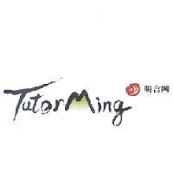On June 1, 2023, Taiwan’s Intellectual Property and Commercial Court (“IPC Court”) overturned determination previously made by Taiwan’s IP Office, finding the trademark “e Tutor” registered by the language learning institute Jeda would cause confusion with TutorABC Inc.’s famous trademarks “TutorABC” (Reg. No. 01281166, 01278886, 01636300, and 01278887), “TutorABC.com” (Reg. No. 01636299), “TutorABCjr” (Reg. No. 01467561), and “TutorMing” (Reg. No. 01355089).

Jeda’s contested trademark, “e Tutor” (Reg. No. 01758049), was filed on June 9, 2015, and granted on March 1, 2016, designated for use in services under class 41, including educational service, training service, vocational training, vocational counselling, consulting service, etc. TutorABC Inc. filed invalidation action on July 7, 2016, citing violation of Trademark Act.
On October 31, 2018, Taiwan’s IP Office (“TIPO”)
found in Jeda’s favor, determining that due to the dissimilarity between “e Tutor”
and TutorABC Inc.’s aforesaid trademarks, the aforementioned Trademark Act
should not be applicable. TIPO agreed that TutorABC Inc.’s trademarks are
famous trademarks, and that both parties’ trademarks are applied for use in
similar educational services. However, TIPO was of the view that although both
Jeda’s and TutorABC Inc.’s trademarks feature “tutor”, ordinary consumers still
would not consider them similar with each other. More specifically, in Jeda’s “e
Tutor”, the letter “e” is much bigger than the ordinary word “tutor”, and there
is another ornamental cloud presented, which, when taking as a whole, could render
Jeda’s contested trademark dissimilar with TutorABC Inc.’s cited trademarks.
TutorABC Inc. challenged TIPO’s determination
in the IPC Court. In the first round, The IPC Court sided with TIPO, finding TutorABC
Inc.’s similarity analysis flawed in that TutorABC Inc. inappropriately focused
on the common word “tutor” shared by Jeda’s and its cited trademarks, while ignoring
all the other presented elements. TutorABC Inc. appealed, and the Supreme
Administrative Court (“SAC”) vacated IPC Court’s first ruling on October 27, 2022,
determining that while there are variations in Jeda’s and TutorABC Inc.’s cited
trademarks, the main impression formed in the consumers’ minds after seeing
both parties’ trademarks would still be “tutor”. As such, the SAC posited that “e
Tutor” should still be found similar with TutorABC Inc.’s aforesaid trademarks.
The case was subsequently remanded back to the IPC Court for further handling
in accordance with SAC’s instruction.
In its second ruling on June 1, 2023, the
IPC Court sided with TutorABC Inc. This time, the IPC Court found TIPO’s
determination erroneous.
1.
Although “tutor” is a word with
ordinary meaning, such a word may still be distinctive. To this end, the IPC Court
affirmed that both Jeda’s and TutorABC Inc.’s trademarks possess
distinctiveness, and that TutorABC Inc.’s aforesaid trademarks have achieved
the status of well-known trademarks.
2.
As to similarity analysis, the
IPC Court followed the path directed by the SAC, considering “tutor” the
dominant portion of Jeda’s contested trademark, which would be considered similar
with TutorABC Inc.’s aforesaid famous trademarks by ordinary consumers.
3.
Given that TutorABC Inc.’s
above trademarks are famous, that both Jeda and TutorABC Inc. provide similar language
educational service, and that “e Tutor” is similar with “TutorABC”, the IPC
Court concluded that Jeda’s contested trademark should be invalidated due to the
likelihood of confusion caused by its similarity with TutorABC Inc.’s famous
trademarks.
Source: 2023 Shin-Shang-Gan-Yi-No. 1 (IPC
Court)












.jpeg)













